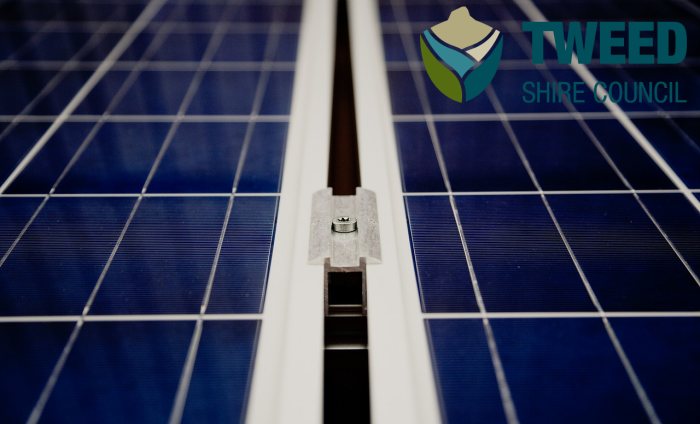
Solar panel image : markusspiske
New South Wales’ Tweed Shire Council has voted to source 25 per cent of its electricity from self-generated solar power by 2022 and potentially half its needs from solar and batteries by 2025.
The Council adopted the Renewable Energy Action Plan (REAP) in a meeting last week.
Phase One energy efficiency and solar projects in the REAP, which will take Council to the 25 per cent mark, involves approximately $937,000 expenditure in 2017/2018, $883,000 in 2018/2019 and $413,000 in 2019/2020. Payback on these projects is estimated at 5.2 years.
Phase 1 will consist of 20 projects that are forecast to slash Council’s mains grid electricity consumption by an estimated 5,000 MWh per year. Tweed Daily News states the council estimates electricity consumed at 390 sites cost $3.9 million in the 2016-17 financial year.
Batteries will not feature in Phase 1 due to the current cost of energy storage, but will be contemplated for Phase 2.
“Reduced costs for storage technology of around 40% compared to 2016/2017 pricing are expected in the next two years,” states a REAP document. “At this point, or when a positive return on investment can be demonstrated, the economic feasibility of these projects should be reviewed.”
According to Echonetdaily, a total of 3.2 megawatts of solar capacity will be installed under REAP, which is expected to save up to $1.5 million per year.
Tweed Shire is located in the Northern Rivers region of New South Wales, situated around 860 kilometres north of the centre of Sydney and 100 kilometres south of the Brisbane CBD, Home to more than 93,000 people, solar power is very popular in the region among households.
Across Tweed Shire, more than 11,000 small scale solar power systems are installed, with a collective capacity of 37.64 megawatts – a very impressive ~370 watts per person.
Council has really only been dabbling in PV to this point. Solar panels installed at five of its facilities contribute under 1% of Council’s electricity use currently.
Tweed Shire Mayor Katie Milne is a big supporter of renewables and was the first Greens-backed Mayor of the Shire.
‘Local government has a key role to play, not just in facing the impacts of climate change but in leading community efforts to reduce emissions,’ Cr Milne said.

 RSS - Posts
RSS - Posts



Speak Your Mind